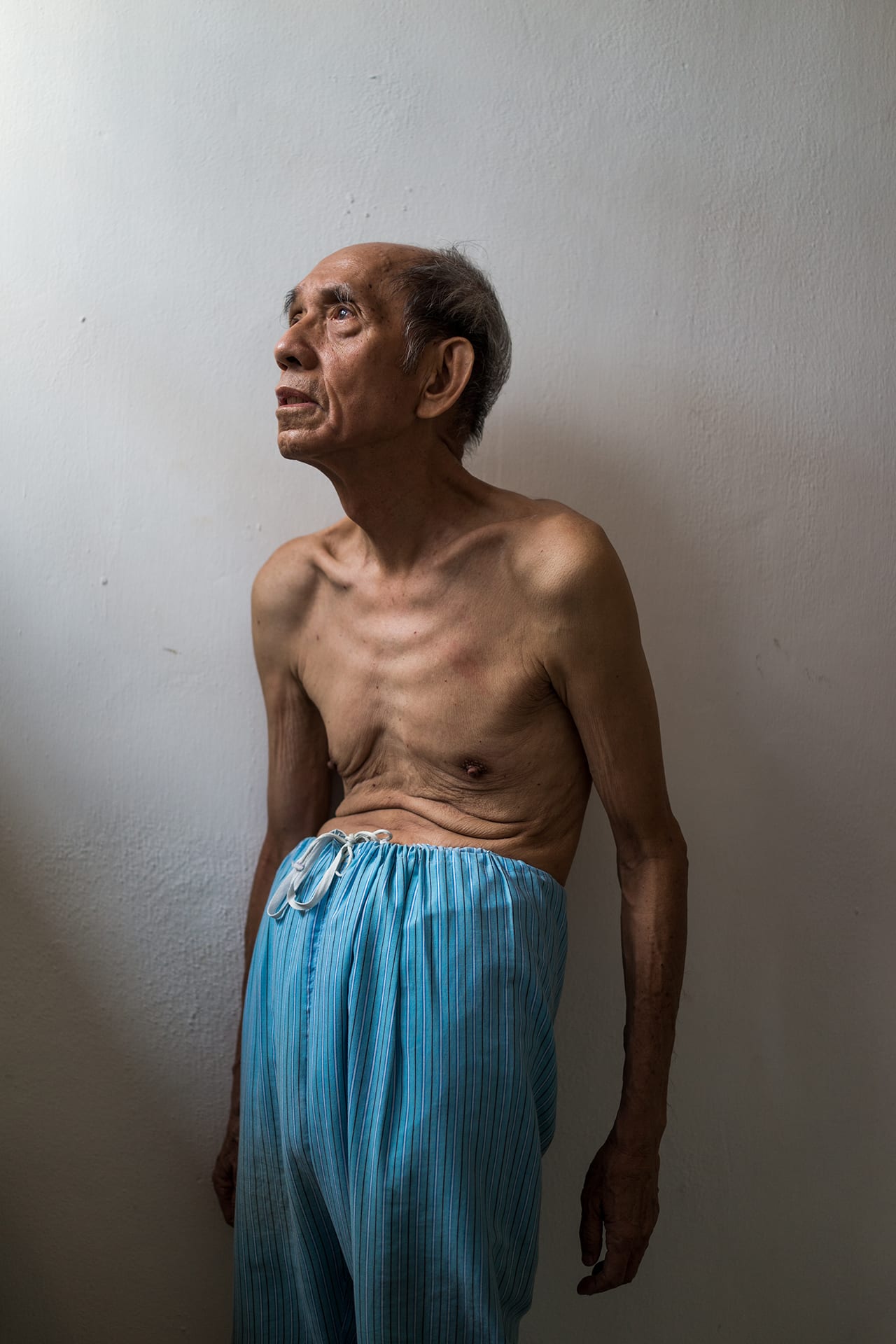It’s disconcerting to think how years of work and effort, of countless hours spent practising and honing a skill, can be wrenched away from any of us in just a few minutes of misfortune. It’s also, for any of us used to good health, troubling to consider how reliant we are on the basic functionality of our bodies. A photographer, for example, needs to be able to hold a camera, to have the strength to frame a shot and time the click of the shutter in the heat of the moment. Shorn of that basic ability, what are we left with? Early one morning in May 2015, Sim had to face that exact question.
She was on assignment for a French newspaper, travelling to the Tumen Economic Development Zone, a government-owned complex of Chinese factories on the edge of the border with North Korea. Tumen employed North Korean labourers who, with state sanctioning, would be sent to live and work in the economic zone. The brief was to capture how North Korea and China trade. This place seemed like the perfect microcosm for that complex relationship – the makings of great pictures.
Entering Tumen with her driver and colleagues from Le Monde, she failed to spot a sign that read: “No smoking, photography, or practising driving”. As they approached the factories, the car passed a small group of women in black jumpsuits, knelt by the roadside picking weeds from the ground. Sitting in the driver’s seat with the window wound down, Sim instinctively raised her camera and fired off a couple of shots. “Almost immediately, the women turned around, ran towards the cab, and reached into the car,” she wrote in an article for ChinaFile, recounting events.

